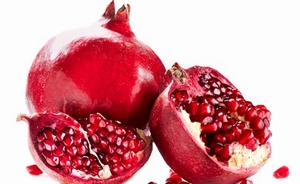 nother four people are now known to have been sickened in the ongoing hepatitis A outbreak linked to pomegranate seeds from Turkey, the Centers for Disease Control and Prevention announced Monday.
nother four people are now known to have been sickened in the ongoing hepatitis A outbreak linked to pomegranate seeds from Turkey, the Centers for Disease Control and Prevention announced Monday.A total of 131 people have fallen ill, and 59 have been hospitalized as a result of their infections, according to CDC.
The first illness linked to the outbreak began on March 31, 2013, according to CDC. The most recent identified case began June 24.
The outbreak has been linked to a frozen berry mix distributed by Oregon-based Townsend Farms and sold at Costco stores in the western U.S. since late May. By late last week, health officials had identified the pomegranate seeds that were part of the mix as the likely source of the virus. The seeds were shipped to the U.S. by Goknur Foodstuffs Import Export Trading of Turkey.
As a result, the U.S. Food and Drug Administration announced Saturday that it will detain all shipments of pomegranate seeds from Turkey.
Last week the agency also reported that the pomegranate seeds suspected to be the hepatitis A outbreak source were also sold by Scenic Fruit Company as Woodstock Frozen Organic Pomegranate Kernels. Scenic Fruits, based in Gresham, Oregon, issued a voluntary recall of the product Wednesday.
Consumers who have consumed any of the recalled products, including Organic Anti-Oxident Berry Blend, sold at Costco stores in the western United States; Harris Teeter Organic Antioxidant blend, sold at Harris Teeter Stores in the East; or Woodstock Frozen Organic Pomegranate Kernels within the past two weeks should receive the hepatitis A vaccine.
Those who ate the potentially contaminated products more than 14 days ago will not be able to prevent illness with the vaccine, and should monitor their health for signs of hepatitis A infection, which include nausea, fatigue, loss of appetite, diarrhea and jaundice.
People who develop symptoms of hepatitis A infection after eating the implicated products should contact is or her healthcare provider or local health department.





